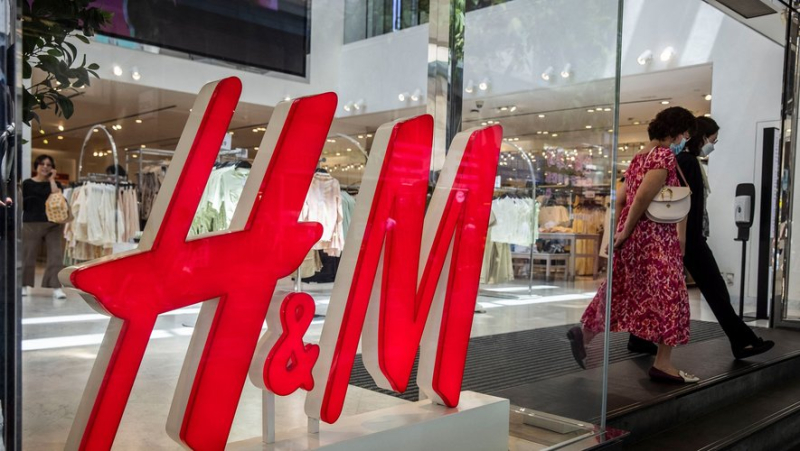“2% of greenhouse gas emissions from fashion”: H&M and Puma are making efforts while Shein is lagging behind

Of these eleven brands, only Levi's, Puma and H&M “are in the race to reduce” these emissions “by at least 55% by 2030 compared to 2018”. ISAAC LAWRENCE/AFP
The fashion industry "continues to rely on fossil fuels" but brands are making efforts to reduce them like H&Puma while others are lagging behind such as Shein or Uniqlo, according to a report by the American-Canadian NGO Stand Earth published this Tuesday, May 21, 2024.
She scrutinized the supply chains of eleven major fashion brands including the Swedish H&M, Puma, Nike, Levi's, Adidas, Gap, the Spanish Inditex (Zara), the Japanese Fast retailing (Uniqlo) or even Shein, based in particular on their public data as well as that of the Bloomberg terminal.
More than a billion tonnes of CO2 equivalent
In 2019, the fashion industry generated more than a billion tonnes of CO2 equivalent, or around 2% of global greenhouse gas emissions greenhouse, recalls Bloomberg in an article from May 16.
Brands "continue to massively use fossil fuels to produce their clothing and shoes and fail to decarbonize their supply chain' quot;, denounces Stand Earth.
Of these eleven brands, only Levi's, Puma and H&M "are in the race to reduce" these emissions "at least 55% by 2030 compared to 2018", notes Stand Earth which established a score out of 100 points (commitments, transparency, progress by 2030, concrete actions, financial investments).
The NGO evokes progress "limited but encouraging", and underlines the notable part (27, 4%) of renewable energies in Puma's electricity consumption through its two main suppliers, as well as the financial aid that H&M grants to its subcontractors to help them, through example, to install solar panels.
In fashion,"13% of emissions come from materials and 50% from production and manufacturing, which is why supply chain decarbonization is essential", Henrik Sundberg, in charge of climate issues at H&M, said on Thursday during a meeting in Paris attended by AFP.
Shein gets the lowest score
The Chinese brand based in Singapore Shein obtains the lowest score (2.5 points) and "has increased its emissions by&# 39;around 50% just in one year (between 2021 and 2022, Editor's note), now emitting as much annual pollution as Paraguay", or 9.17 million tonnes, according to Stand Earth .
In 2023, Shein "began to develop a comprehensive decarbonization roadmap" with the help of the Anthesis firm and "concrete initiatives have been put in place", such as solar panels for warehouses or even partnerships with logisticians using "green" vehicles, ensures the brand with the' ;AFP.
Then follow the Japanese group Fast Retailing (14 points) then the sports clothing brand Lululemon and Inditex at 16 points. "The majority of brands obtained a score lower than 25/100", the NGO still laments.




